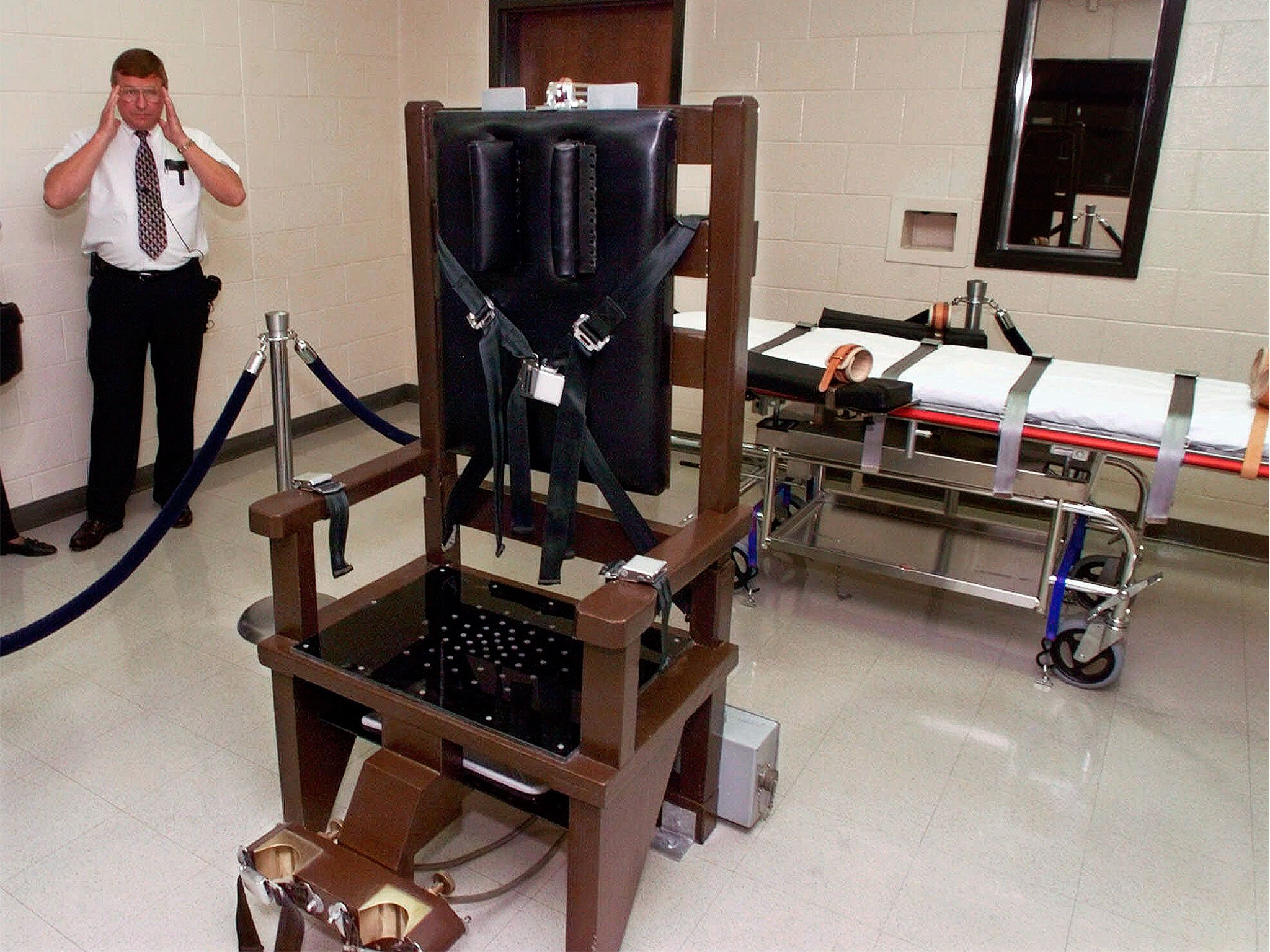‘Self-taught’ electrocution expert fears his electric chair will fail during Tennessee execution
'Tennessee's got an electric chair that's going to hurt someone or cause problems. And it's got my name on it'
A “self-taught” execution expert fears the 30-year-old electric chair he built may fail as Tennessee carries out the death sentence on a double-murderer.
The execution of Edmund Zagorski, scheduled to go ahead on Thursday, looks set to become only the second by electrocution in the state since 1960.
It follows controversy over Tennessee’s three-drug lethal injection protocol, which some medical professionals believe kills inmates in an excruciating and elongated fashion, leading Zagorski to exercise his right under state law to die in the electric chair.
However, the man who built the chair being used in the execution has said the device, last operated in 2007, could prove to be a similarly-inhumane way to carry out the sentence.
Fred Leuchter was once a well-respected figure within the prison system, designing electric chairs, gas chambers, lethal injection machines and gallows for 27 states between 1979 and 1990.
But, his reputation was tainted when he claimed there had been no gas chambers at Auschwitz and scrutiny that followed revealed he was not a qualified or licensed engineer, despite branding himself as such.
When he was hired to rebuild Tennessee’s electric chair in 1988, he used skills picked up from designing navigational and surveillance equipment, as well as studying early executions.
Now, Mr Leuchter claims the device may fail during Zagorski’s execution because since the controversy he has no longer been allowed to service it.
“What I'm worried about now is Tennessee's got an electric chair that's going to hurt someone or cause problems. And it's got my name on it,” he said. “I don't think it's going to be humane.”
Professor Deborah Denno, a legal expert on electrocution and the death penalty at Fordham University, said Mr Leuchter had often filled a void for prison authorities over the years.
“Often, the most qualified people don't want to be involved [in executions]”, she said.
Even after his comments on the Holocaust and the later scandal surrounding his qualifications left him unwelcome as a formal prison contractor, Prof Denno said officials continually turned to Mr Leuchter for help “because they literally had no one else to go to".

Electrocution is becoming increasingly uncommon in the US, where only nine states still possess electric chairs and just 14 of the 871 inmates executed since 2000 have been put to death using the method.
Prof Denno added electric chairs have “a history of botches that has only gotten worse".
In two Florida executions in the 1990s, smoke and flames shot from inmates’ heads. In a 1999 electrocution, blood spilled from under an inmate's mask as the death sentence took place.
Tennessee has only executed one other prisoner in Mr Leuchter’s chair, convicted child killer Daryl Holton in 2007.
His electrocution was deemed successful and the state’s governor, Bill Halam, said he is confident Zagorski’s execution will also be carried out without issue.

“I have a great deal of confidence in our department of correction folks,” he said. “We've spoken with them regularly and they've assured us [the chair is ready].”
Zagorksi, 63, who was convicted in 1984 for killing two men during a botched drug deal, was denied a last-minute stay of execution by an appeals court on Wednesday.
The death row inmate has previously argued both the electric chair and lethal injection infringe upon his eighth amendment protections against cruel and unusual punishment.
In a statement to an appeals judge, the prisoner said he would prefer to die via electrocution as the method was the “lesser of two evils”.
The Tennessee Department of Corrections said Zagorski had chosen pickled pig knuckles and pig tails as his final meal, which would be provided to him on Thursday.
Additional reporting by AP
Join our commenting forum
Join thought-provoking conversations, follow other Independent readers and see their replies
Comments
Bookmark popover
Removed from bookmarks